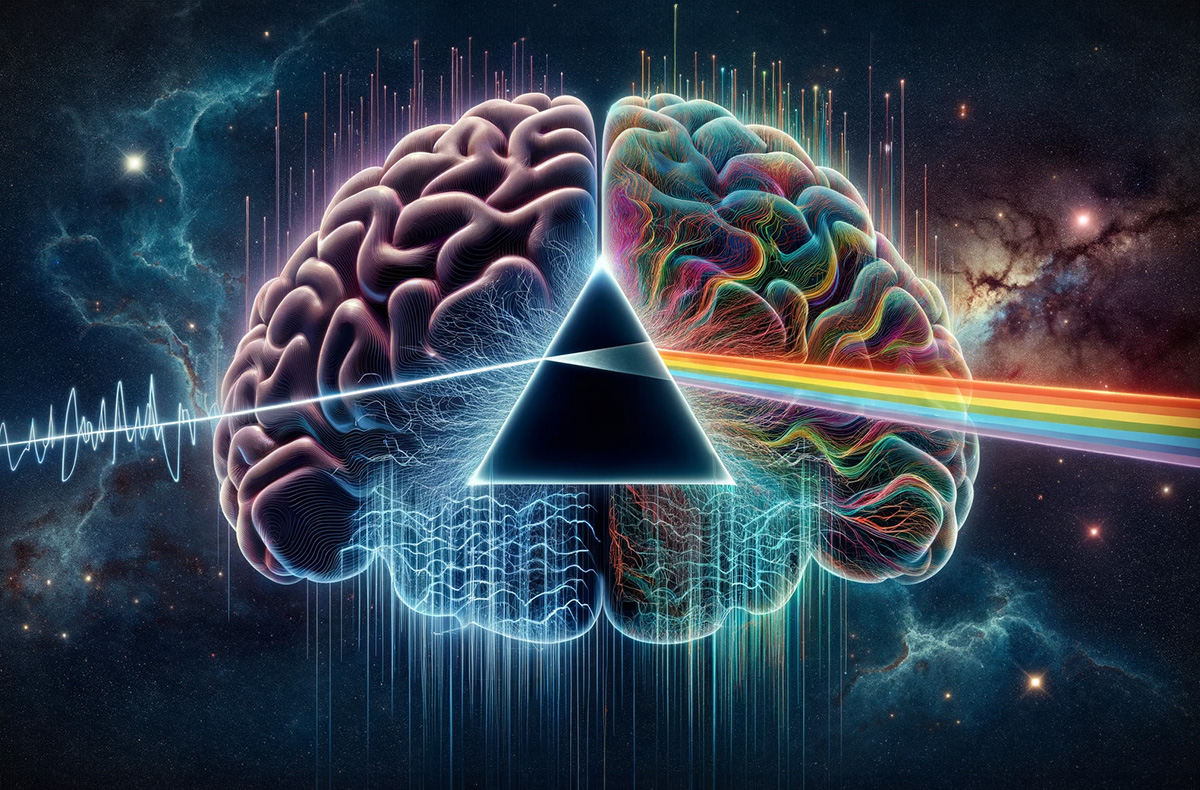Researchers and the medical team at UC Berkeley recently completed a remarkable study involving 29 patients with epilepsy who were undergoing brain surgery. During their procedures, they played a Pink Floyd song – A Brick In the Wall (Part 1) – while using electrodes to record patients’ brain activity while hearing the track. They recorded the patients’ brain activity data, essentially using the electrodes as microphones, and then programmed AI to translate the data patterns back into audio.
In effect, they were able to use brain waves to perform an identifiable cover of the Pink Floyd classic. It is far from perfect and sounds a bit as though it’s being played underwater, but the tune is certainly recognizable. The original and brain-produced clips can be heard here for comparison.
Why Pink Floyd Was Chosen
To start, the scientists at UC Berkeley wanted to make sure that everyone understood that they are indeed fans of the English band. This particular song can also appeal to a wide range of music preferences, and presumably, they didn’t want to make someone suffer through a terrible track. They also selected Pink Floyd because the band’s music is known for being very textured and layered with unusual chords and instruments, meaning it can spark a wide variety of brain activity and emotion.
The Potential of Musical Decoding
Previous attempts at decoding neural signals by using words and speeches have proven challenging, though research is still ongoing in various ways. While Neuralink, a pioneering company in neurotechnology founded by Elon Musk, has been actively involved in this field, its primary focus has revolved around enabling individuals to type using their minds, rather than reproducing speech or sound.
The breakthrough achieved by the researchers at UC Berkeley, however, signifies a paradigm shift in the approach toward decoding neural activity. The utilization of music as a medium for deciphering brain signals could prove to be pivotal. Unlike the complexity of language, music offers distinct rhythmic and tonal patterns that the human ear can readily discern and interpret. This innovative approach not only holds promise for understanding the intricacies of brain function but also carries profound implications for individuals with various disabilities.
Who this Study Could Help
Neural decoding opens many pathways with the potential to revolutionize communication methods for individuals who face challenges in speaking or typing due to various neurological conditions. Beneficiaries of this type of technology would be patients who’ve had a stroke or suffer from ALS (Amyotrophic Lateral Sclerosis).
ALS is the disease that famed theoretical physicist Stephen Hawking suffered from and which caused his difficulties communicating. Hawking, an Englishman like the members of Pink Floyd, was able to communicate through a computer program, but as it was a rather primitive version of the technology, the sound was very mechanical and robotic. Interestingly, Hawking never “upgraded” his voice in later years despite major developments in the field. He said that he chose not to simply because he’d come to recognize that voice as his own and that he identified with it.
For others who would prefer a more natural and human-sounding voice, the use of Pink Floyd is a way to move towards recreating the musicality of speech via its rhythms, stresses, and intonations. By incorporating music with cutting-edge technology, potential advancements are at an interesting intersection of humanity and high tech.
A New Generation of Privacy Concerns
Though most would celebrate this triumph of science, critics point out a growing need to set rules and guidelines about how we use such data. As we get closer and closer to being able to peer into someone’s mind (though for now, solely in attempts to help with neurological problems), the concept of mental privacy has come to the forefront of ethics issues. As these types of procedures and studies become more prevalent, major data privacy issues arise that will require new regulation and legislation. This is already a contentious issue in related fields, such as the acceptable usage of data coming from wearable tech like Apple Watch, heart rate monitors, and even information from automobiles.
Final Thoughts
As scientists navigate this unique frontier of neuroscience, they have a wide array of tools at their disposal, including burgeoning AI capabilities, machine learning, and, yes, even Pink Floyd songs. Ultimately, the journey to unlock the mysteries of brain activity through music represents a profound intersection of science, technology, and human expression, offering hope and possibility to those in need.


